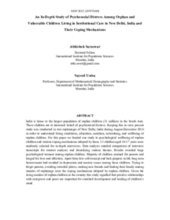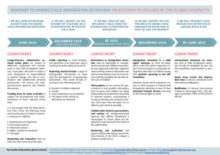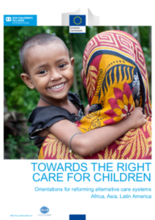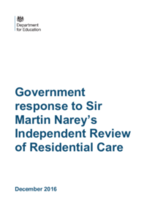Displaying 941 - 950 of 1510
This study examined the psychological wellbeing of children in institutions and their various coping mechanisms.
This roadmap to ending the detention of children in immigration from the Initiative for Child Rights in the Global Compacts outlines the commitments, examples of practice, reference documents, and guidelines for each stage of the strategy from June 2019 to June 2025.
This synthesis report contains findings of a study that conducted research in six South and Central American, Asian and African countries for the purpose of gaining understanding of the nature, extent, and scope of institutionalization and the feasibility of deinstitutionlisation.
The Bulgaria Country Fact Sheet provides short details on the state of institutional care in Bulgaria.
In July 2016, the UK government committed to implementing several recommendations laid out in Sir Martin Narey’s independent review of children’s residential care. This report sets out more detail on each of these recommendations and also sets out the government’s response to the recommendations in Sir Martin’s report.
This report documents the life experiences of care leavers in Australia.
This paper draws on the literature and practice examples from around the world to examine the fundamental challenges experienced by States in their efforts to implement the 'suitability principle,' as described in the Guidelines for the Alternative Care for Children.
This country care review includes the care-related Concluding Observations adopted by the Committee on the Rights of the Child.
This qualitative study explored adolescent girls’ perspectives and programme needs as they transition from two institutions in Highfield, Harare, Zimbabwe.
The objective of the study was to estimate the prevalence, comorbidity and socio-demographic correlates of common mental disorders among orphan and vulnerable children (OVCs) in residential care.







